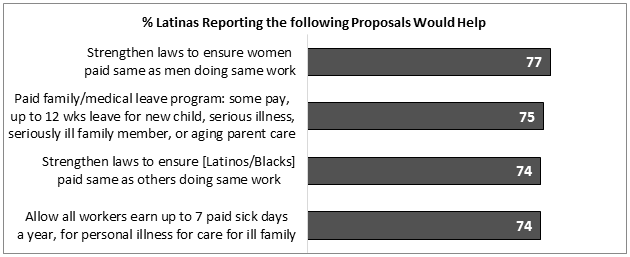The political landscape of the 2008 presidential election, with Obama and Clinton as major party political candidates for president, brought up important questions concerning the impact of race and gender on voting behavior. Questions arose concerning the predicted level of voter support for women and minority political candidates. Is a black or female presidential candidate electable in the U.S.? How does identity impact the level of support for diverse political candidates? The 2016 presidential campaign is also expected to challenge our traditional notions of what makes a political candidate successful, especially with the expected candidacy of Hillary Clinton. A new book, The Latina Advantage: Gender, Race, and Political Success (2013), contributes to the larger political debate over identity and support for diverse political candidates for elected office. This post summarizes some of the main points generated from the book.
The 2013 U.S. Congress includes an unprecedented majority Democratic delegation made-up of women and minorities. The 113th U.S. Congress includes 98 women, or 18.3 percent of 535 seats. This includes 30 racial/ethnic minority women, or 30.6 percent of the female delegation. The racial/ethnic female delegation includes 14 African-Americans, 7 Asian Pacific Islander, and 9 Latinas (CRS).
Racial/ethnic minority women currently represent a greater share of minority political representatives than women represent among white elected officials, in both the U.S. Congress and state legislatures. In 2013, there are also 1,788 women serving in U.S. state legislatures, which is 24.2 percent of the total available seats (CAWP 2013). This includes 368 racial/ethnic minority women, who represent 20.6 percent of the total number of female state legislators: 242 African Americans, 32 Asian American/Pacific Islander, 81 Latinas, and 13 Native American females (CAWP 2013).

Where can we expect to find more racial/ethnic minority state legislators, in particular Latinas? There are a variety of state-level political factors and candidate quality characteristics that are expected to influence the number of women and minorities in state legislative offices. However, the previous research either focuses on white women, black women, or an aggregate look at racial/ethnic minority women. There are no previous studies that examine the political experiences of Latinas across states.
There is a wide variation of female political descriptive representation in state legislatures in the US. Overall, there are more women serving in state legislatures in the Northeast and West regions of the country and fewer women in the South. White women legislators are generally located in Eastern and Midwestern states, while racial/ethnic minority women legislators are likely to be in the Southern and Western states (Scola 2006).
Scholars studying both variation across countries and across U.S. states commonly focus on three main groups of explanatory factors including structural, institutional, and cultural factors. However, the traditional state level factors that influence white female political representation do not work as well to explain racial/ethnic minority representation.
In particular, Latinas represent 81 out of the 245 total Latino state legislators in the US. Latina legislators are located in AZ, CA, CO, CT, FL, IL, IN, MA, MD, ME, MN, NC, NH, NJ, NM, NV, NY, OR, RI, TX, UT, and WI (CAWP 2013). Nineteen Latinas are in the state senate and 62 in the lower house of the state legislatures; with the majority serving as Democrats. The states with the most Latinas in the state legislature include New Mexico (with 12), Texas (with 10), and Arizona (with 8) (CAWP). Latinas make up a sizeable proportion of all the Latino state delegations, especially in New Jersey (75 percent), Colorado (50 percent), and Illinois (50 percent) (NALEO)

The Latina Advantage includes questions about the state-level factors that can influence Latina political office-holding across the country, with an analysis of the 2005 and 2009 state legislatures. The presence of Latina legislators is larger for the states that have a higher minority population and more Hispanic owned businesses. Overall, the results point to a different set of state-level factors to explain Latina political variation, which does not fit the traditional models used to explain the variation of women in general or minority women in particular. For instance, Latina legislators are generally more likely than their male counterparts to represent districts with less than 50 percent Latino populations. This finding highlights the ability of Latinas to attract more diverse voter coalitions. In addition, Latina legislators are not significantly disadvantaged in terms of the amount of campaign contributions they collect compared to their male counterparts.

Latina candidates have some political advantages in their favor as they continue to rapidly change the makeup of U.S. politics. They will influence the next wave of Latina candidates, with their demonstration of increased electoral success as highly qualified and successful candidates.
I will follow-up with this discussion in a future post focusing on additional explanations for Latinas’ increased political success, through more available voter support. I show that the intersection of race and gender does not have to create a double disadvantage situation for Latina candidates, instead Latinas can benefit from their gender and racial/ethnic identities.
Christina Bejarano is an Associate Professor of Political Science at the University of Kansas. Her book entitled The Latina Advantage: Gender, Race, and Political Success (2013) was recently published by the University of Texas Press. She can be reached at [email protected].


